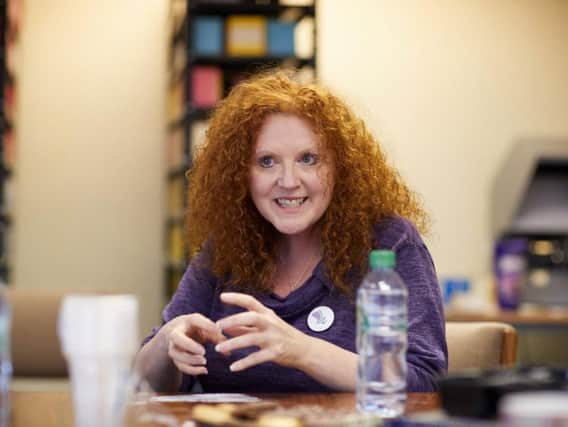Blue plaque will honour Forgotten Wakefield singer Phyllis Lett


Singing at The Proms in front of royalty became an ordinary occurrence for Phyllis Lett, a nationally acclaimed contralto, who grew up in Yorkshire’s West Riding.
Such was her talent that 20th century composers would write their music with her voice in mind and in 1916, aged in her 30s, she became the first woman to be recognised with a Gold Medal by the distinguished Musicians’ Company. In fact, she is one of only three females to have ever received the society’s gold award.
Advertisement
Hide AdAdvertisement
Hide AdDespite all she achieved - she toured Europe and the USA and graced the top of the bill at the Queen’s Hall, once London’s principal concert venue, Phyllis’ talent is little known in Wakefield, the city in which she was raised, today.
But a research project group, which is unearthing stories of women who have all but disappeared from the area’s history, has been working to bring her out of the shadows, and next month her achievements will be celebrated with the unveiling of a blue plaque.
“Phyllis’ father was an esteemed surgeon at Wakefield’s Clayton Hospital and ran a GP practice from the family home in the city, but Phyllis’ voice, her stage presence and beauty caught the imagination of the nation and took her far away from the city that loved her,” explains Sarah Cobham, who is heading up the Forgotten Women of Wakefield Project.
Advertisement
Hide AdAdvertisement
Hide AdShe has been able to hear Phyllis sing after acquiring a 1925 gramophone and a 78rpm original recording. “This woman’s voice and story are extraordinary,” she says.
Group researchers Hannah Casey and Helga Fox have uncovered Phyllis’ fascinating story. The singer, one of eight siblings, made her debut in Wakefield’s corn exchange during her teens, in around 1899, before starting a scholarship at the Royal College of Music (RCM) several years later.
In 1903, she made her debut at The Royal Albert Hall, as part of the RCM’s concert season and within three years was a contralto soloist at music festivals across Britain. A recording artist, she was being heard more on the wireless by 1908 and later regularly featured in gramophone concerts broadcast live on the BBC nationwide, as well as frequently performing at The Proms.
Her professional career saw her tour across the UK and abroad, sometimes accompanied by her sister Hilda, a violinist, and, on other occasions, with choral societies and orchestras.
Advertisement
Hide AdAdvertisement
Hide AdShe returned to Wakefield several times, including for the unveiling of the Queen Victoria statue in the city’s Bull Ring in 1905 and again for a Corn Exchange concert in 1914 to raise funds for the First World War effort.
But, after marrying her long time friend Charles Rupert de Burgh Kerr of Australia in 1924, she moved across the globe to live in his native country.
“Upon her announcement to leave England to go and live in Australia she became even more in demand,” Sarah explains. “Her final live concert was at the Good Friday Gatherings at Crystal Palace where over 15,000 people attended. A farewell wireless concert was arranged, which was broadcast to over 10 million people across the UK with the famous Italian singer Luisa Tetrazzinai coming from Italy to sing specifically with Phyllis.”
In the years that followed, Phyllis’ life changed with the birth of her only child, a daughter, and rheumatoid arthritis began to curtail her career.
Advertisement
Hide AdAdvertisement
Hide AdRecords of her occupation changed from ‘professional singer’ to ‘home duties”. When she died in 1962, her passing merited just a six-line obituary published in The Stage, Sarah says.
“Phyllis was so engaging, so charismatic, so alive, that it seemed incredibly tragic when that story came to a close.”
Phyllis’ blue plaque will be unveiled as part of the group’s performances of the Difficult Women? play, celebrating the stories members have uncovered, on June 28 and 29.